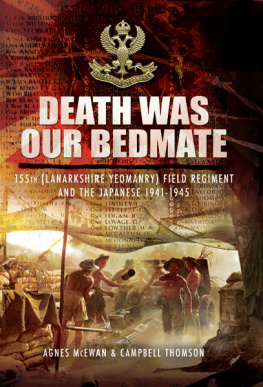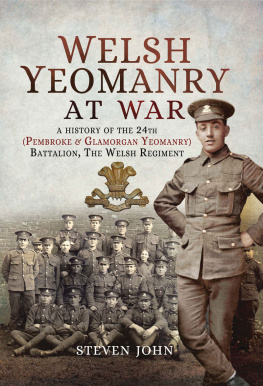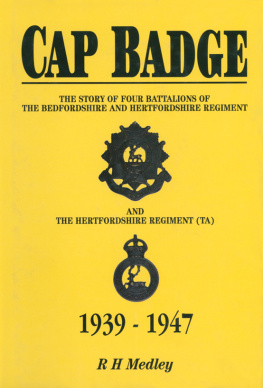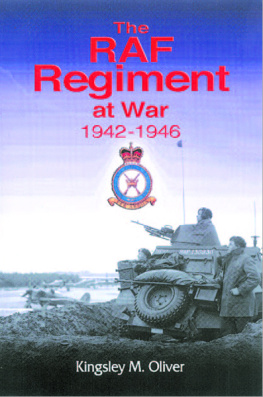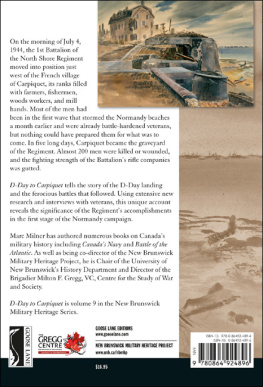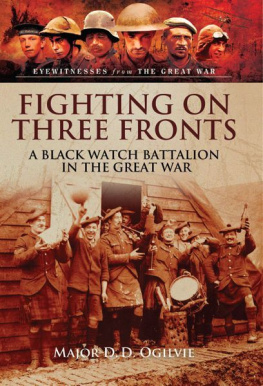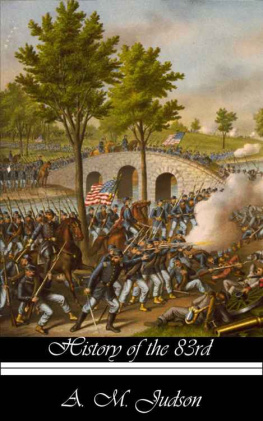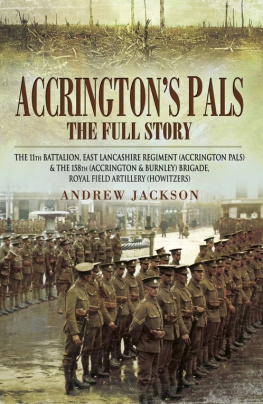The stimulus for Death Was Our Bedmate was the book
Out of the Depths of Hell:
A Soldiers Story of Life & Death in Japanese Hands
by my late father, John McEwan.
Agnes McEwan
First published in Great Britain in 2013 by
PEN & SWORD MILITARY
An imprint of
Pen & Sword Books Ltd
47 Church Street
Barnsley
South Yorkshire
S70 2AS
Copyright Agnes McEwan and Campbell Thomson, 2013
ISBN 978-1-78159-169-7
EPUB ISBN: 978-1-47382-248-1
PRC ISBN: 978-1-47382-200-9
The right of Agnes McEwan and Campbell Thomson to be identified as
Authors of this work has been asserted by them in accordance with the
Copyright, Designs and Patents Act 1988.
A CIP catalogue record for this book is
available from the British Library.
All rights reserved. No part of this book may be reproduced or
transmitted in any form or by any means, electronic or mechanical
including photocopying, recording or by any information storage and
retrieval system, without permission from the Publisher in writing.
Typeset in 11/13pt Palatino by
Concept, Huddersfield, West Yorkshire
Printed and bound in England by
MPG Print Group
Pen & Sword Books Ltd incorporates the imprints of Pen & Sword
Aviation, Pen & Sword Family History, Pen & Sword Maritime, Pen &
Sword Military, Pen & Sword Discovery, Wharncliffe Local History,
Wharncliffe True Crime, Wharncliffe Transport, Pen & Sword Select,
Pen & Sword Military Classics, Leo Cooper, The Praetorian Press,
Remember When, Seaforth Publishing and Frontline Publishing.
For a complete list of Pen & Sword titles please contact
PEN & SWORD BOOKS LIMITED
47 Church Street, Barnsley, South Yorkshire, S70 2AS England
E-mail:
Website: www.pen-and-sword.co.uk
This book is dedicated to the Men of the 155th (Lanarkshire Yeomanry) Field Regiment, RA in acknowledgement of their courage and comradeship in the Far East throughout the Second World War.
Those of us who were privileged to observe both officers and men of the Lanarkshire Yeomanry during those years of captivity are able to testify to the value of a county association in that important relationship between officers and men. This yeomanry regiment set an example of behaviour as prisoners of war that simply could not be rivalled. Their outstanding part in the campaign, especially at Slim, is yet another story. They were like one great big family in which everyone took care of everyone. When small parties or even individual soldiers of the regiment were taken away by the Japs and transferred to remote camps, somehow or other an officer of the regiment would be sure to find his way. No single soldier of that regiment was ever allowed to feel forgotten. They seemed to possess a spirit that said we come through this as a regiment and not as individuals. It was one of those things that sticks in the memory, which some of us talk about even today.
Lieutenant Colonel Denis Russell-Roberts
Spotlight on Singapore
Contents
Introduction
I first learned of the 155th (Lanarkshire Yeomanry) Field Regiment, RA, from my late father, John McEwan, who had been a Gunner with the regiment and subsequently a prisoner of war in the Japanese hell camps at Kinkaseki and Kukutsu on Formosa, modern-day Taiwan.
Like all POWs who returned from the camps in the Far East, he believed himself betrayed by his own country. The men who had fought so bravely throughout the disastrous Malayan Campaign were made out to be cowards following the capitulation at Singapore.
To make matters even worse, he was saddened that his old regiment was little known, even in the county of its origin, and this book has been written to tell the story of those forgotten Gunners.
Unlike most other military units that saw action during the Second World War, the Lanarkshire Yeomanry did not produce a regimental history or other official account of their wartime experiences in the Far East. Although not intended as a comprehensive history of the Malayan Campaign or the POW story, this book uses the stories of the men themselves to give a snapshot of their war and of their time as POWs.
It includes a full and detailed nominal roll of the regiment and by referring to it and the relevant chapters of the POW story, the reader can follow the individual footsteps of a loved one through the jungle, along the Death Railway or down into the depths of the copper and coal mines where they slaved and suffered.
They should not be forgotten.
Agnes McEwan
Newmains, Lanarkshire
2013
Acknowledgements
This account of the 155th (Lanarkshire Yeomanry) Field Regiment, RA, at war and as prisoners of the Japanese has been written in collaboration with Campbell Thomson, who became a close friend of my late father John McEwan after reading of his wartime experience in the book Out of the Depths of Hell: A Soldiers Story of Life & Death in Japanese Hands.
We are very grateful to the many families of former members of the regiment for their help, patience and understanding in our search for material about the involvement of the Lanarkshire Yeomanry in the illfated Malayan Campaign and their subsequent hell as POWs. There are too many to mention individually, but they know who they are.
This being our first foray into writing, we would like to acknowledge the critical help and advice given by friends Frank Morrison, Alan Coltart and Sally Dorrian. Their patience in reading and reviewing the manuscript was invaluable. The graphic art skills of my son, Patrick, were also put to good use in compiling the various maps and his granda would have been proud of his input into the story of the Men of the Regiment.
The work involved in researching a story such as that of the 155th was complex and we are grateful for the help and advice given by those experienced in the subject, including Terry Manttan of the Burma-Thai Railway Corp, Tony McQuade and Keith Andrews of the Children of the Far East POW Group, Ron Taylor of the Far East POW Community, Michael Hurst of the Taiwan POW Society, and Peter Gallagher, an independent researcher who generously did so much work for us at The National Archives at Kew.
We would also like to thank: Carol Cooper, founder of the Children of the Far East POW Group, for permission to quote from the diary of her father, Lance Corporal Bill Smith of the Norfolk Regiment, who died as a POW on the Death Railway; Tony Fasson, for the papers of his late father, Lieutenant Colonel James Fasson; Carrie Watson, for use of Jims Memoirs; Betty Gwillim, for use of Dicks unpublished memoirs; Martin Moody, for excerpts from the diary of his father-in-law, John Mather, who served with the 155th in the Far East; the Changi Museum, for Peter Rhodes To Japan to Lay a Ghost; Alan Ratnage, for research at The National Archives, Kew; Mike Heather, for material about the POW experience discovered while researching the story of his father-in-law, Ken Pett; and the indomitable Arthur Lane, who experienced the hell at first hand. We also acknowledge the use of quotes from the following books: In the Shadow of Death; Railway of Hell; Out of the Depths of Hell; The Colonel of Tamarkan; One Fourteenth of an Elephant; The Rising Sun On My Back; The Inexcusable Betrayal; Bamboo Doctor; Sweet Kwai Run Softly; Yasume; War Diaries of Weary Dunlop; Bamboo and Barbed Wire; Branch Line to Burma; Spotlight on Singapore; Pristoner on the Kwai; and Banzai, You Bastards!
We would also like to record our sincere thanks to the team at Pen and Sword for their help, guidance and encouragement; in particular, Henry Wilson, Linne Matthews, Matt Jones, Jonathan Wright and Pamela Covey.
Next page
